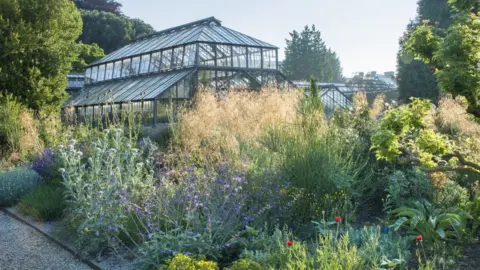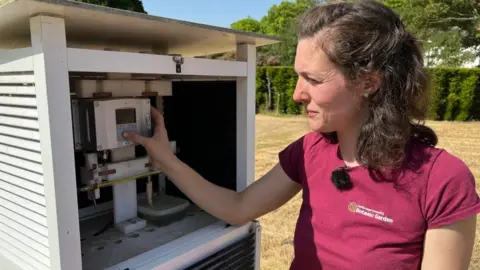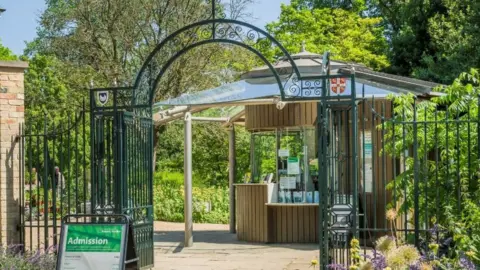Highest temperature 'dismays' Cambridge University Botanic Garden
 CUBG
CUBGThree years ago the highest temperature ever recorded in the UK was confirmed.
The Met Office verified it reached 38.7C (101.7F) at Cambridge University Botanic Garden on 25 July 2019.
Staff will be out again - on what is predicted to be an even hotter day - recording the temperature daily as they have done for more than 100 years.
But garden director Beverley Glover said she was "dismayed" by the accolade and said it was a "serious reminder" of the reality of climate change.
The record-breaking temperature of 2019 beat the previous UK high of 38.5C (101.3F), set in Kent in 2003.
 CUBG
CUBGMs Glover said: "We can't help but feel dismay at the high temperature recorded in 2019, and the predicted high temperatures for [this week], and the very real implication that our local climate is getting hotter.
"This has inevitable consequences for people, plants and animals around us.
"This intense heat, and the summer storms we've been experiencing over recent years, highlights how dynamic the climate is."
The garden, set just south of Cambridge city centre, has been recording the temperature daily since 1904.
The data is used by researchers analysing climate change.
 Steve Hubbard/BBC
Steve Hubbard/BBC"Recording these high UK temperatures serves as a serious reminder that we all need to be taking climate change and its impacts seriously," Ms Glover said.
Extreme weather is a serious concern for staff at the garden, which holds more than 8,000 species of plants from all over the world, from the Arctic to the Himalayas to the tropics.
"Some are basking in this hot weather and others are not so happy," she said.
 CUBG
CUBGIts living collection of plants is grown to assist with teaching and to support scientists and their research worldwide.
"It's this research which is looking to solve some of the world's greatest challenges such as climate change and the supply of food and medicines, so it's vital our collection is well maintained and looked after," Ms Glover said.
"We have a careful system of planting to maximise drought tolerance and are thinking hard about what species of plants will be most likely to thrive in this area in the decades ahead.
"This may mean a change of what we are able to successfully hold in our collections in the future, and this in turn will have an impact on the research which is able to be done using it."
 CUBG
CUBGSince 2020, the garden has been running a plants and climate change trail for visitors, highlighting plants likely to be affected by climate change, plantings that have been designed to cope with a changing climate, and plants that could be used to help mitigate expected climate change.
"The trail also covers important work that the garden is doing to support climate change research, as well as examining gardening in a changing climate," said Hayley McCulloch, the garden's head of learning.

Find BBC News: East of England on Facebook, Instagram and Twitter. If you have a story suggestion email [email protected]
